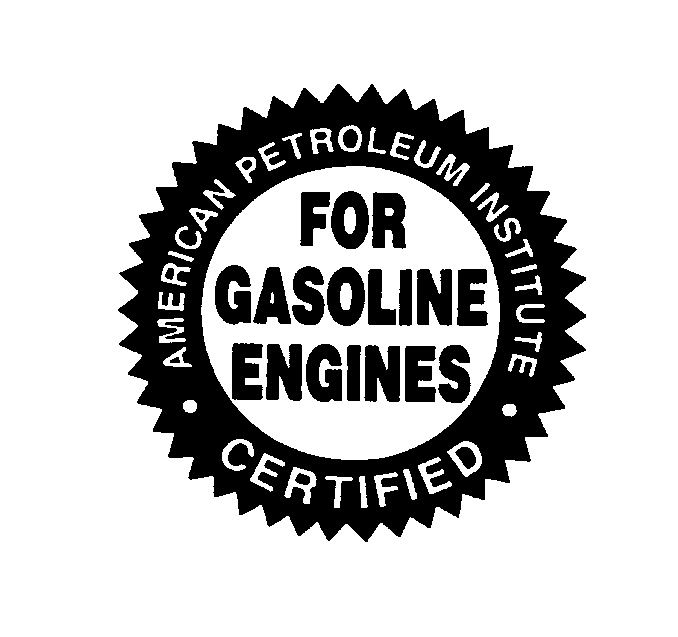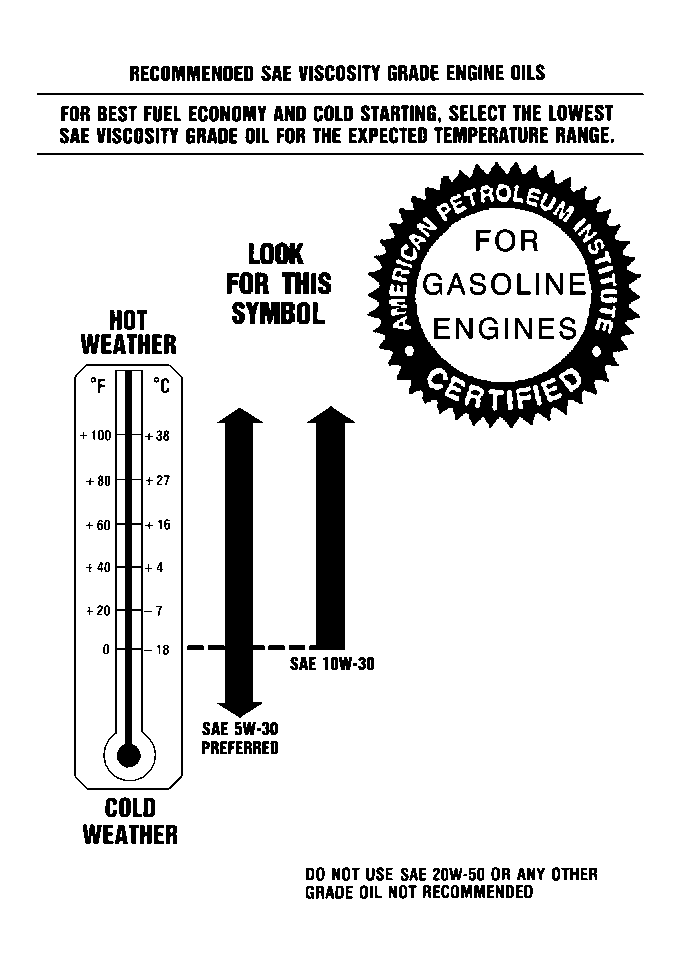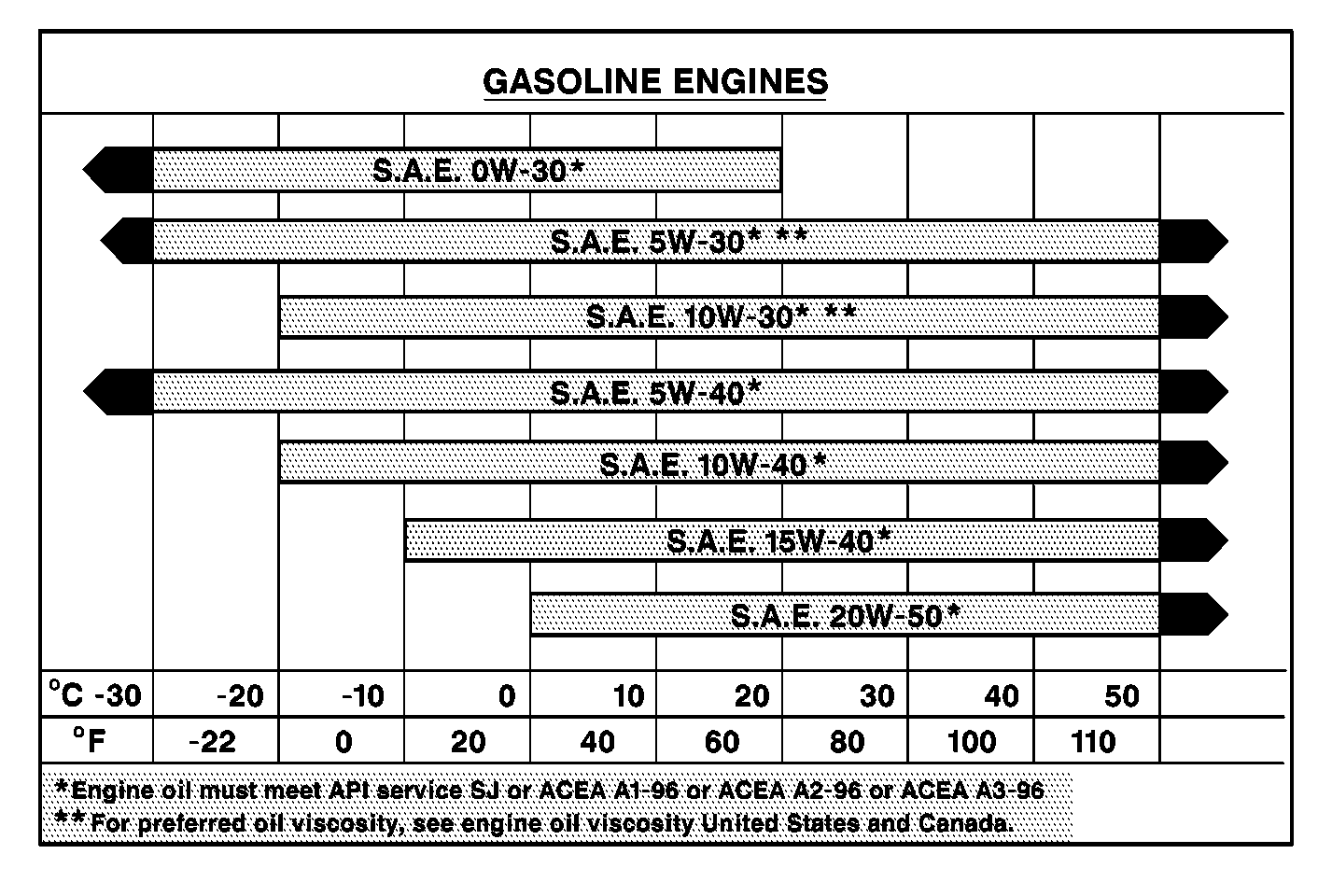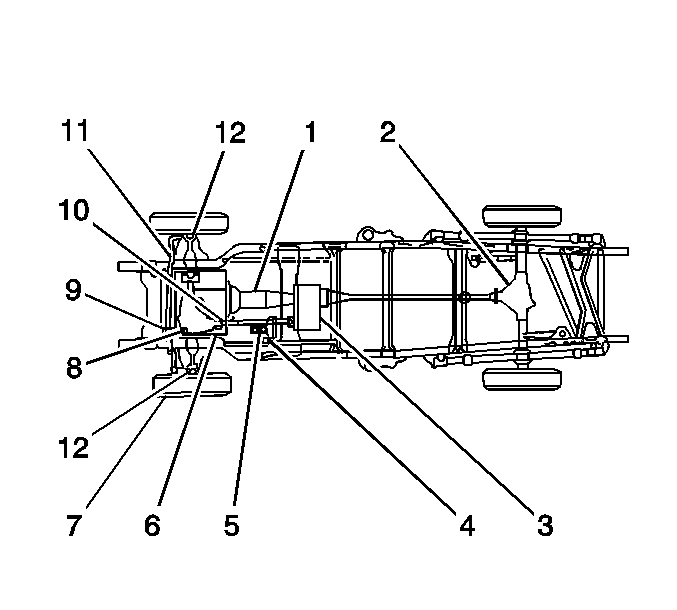For time and/or mileage intervals of scheduled maintenance items, refer to
Maintenance Schedule
.
The following text and illustrations describe the details of the required scheduled
maintenance services.
For information on the proper fluids and lubricants to use, refer to
Fluid and Lubricant Recommendations
.
Engine Oil and Filter Change
For the engine oil and filter changing procedure, for the 2.2L engine, refer
to
Engine Oil and Oil Filter Replacement
in
Engine Mechanical - 2.2L or for the 4.3L engine, refer to
Engine Oil and Oil Filter Replacement
in Engine Mechanical - 4.3L.
Engine Oil Quality (United States and Canada)

Important: When adding to or changing the engine oil, use ONLY oils of the proper quality.
Oils of the proper quality for the vehicle can be identified by looking for
the STARBURST symbol. The STARBURST symbol indicates that the oil has
been certified by the American Petroleum Institute (API), and is
preferred for use in gasoline engines.
Engine Oil Viscosity (United States and Canada)

Notice: Using oils of any viscosity other than those recommended
could result in engine damage. When choosing an oil, consider the range of
temperatures the vehicle will be operated in before the next oil change.
Then, select the recommended oil viscosity.
The recommended oil viscosity for all vehicles is SAE 5W-30.
Engine oil viscosity (thickness) has an effect on the fuel economy and the
cold-weather operation (starting and oil flow). Lower viscosity engine
oils can provide better fuel economy and cold-weather performance.
However, higher temperature weather condition require higher
viscosity engine oils for satisfactory lubrication. When
the temperature is consistently above -18°C (0°F)
, SAE 10W-30 can be used. SAE 20W-50 or oils of other
viscosity rating or quality designations are NOT recommended
for use in any GMC vehicle at any time.
Engine Oil Quality and Viscosity, Other Than The United States and Canada

Notice: Using oils of any viscosity other than those recommended
could result in engine damage. When choosing an oil, consider the range of
temperatures the vehicle will be operated in before the next oil change.
Then, select the recommended oil viscosity.
Important: When adding to, or changing the engine oil, use ONLY oils of the proper quality.
In countries other than the United States and Canada, it may be difficult to
find engine oils that display the API STARBURST symbol certifying the oil
is for use in gasoline engines. If you are unable to find engine
oils displaying the API STARBURST symbol, use engine oils that
meet API Service SJ and/or ACEA A1-96, ACEA A2-96, or ACEA
A3-96 requirements as shown in the chart above.
Chassis Lubrication
Notice: Do not lubricate the parking brake cables. Lubrication destroys the
plastic coating on the cable.
Lubricate transaxle shift linkage. Lubricate the parking brake guides, underbody
contact points and linkage.
Lubrication Points (Automatic/Selectable 4WD)





